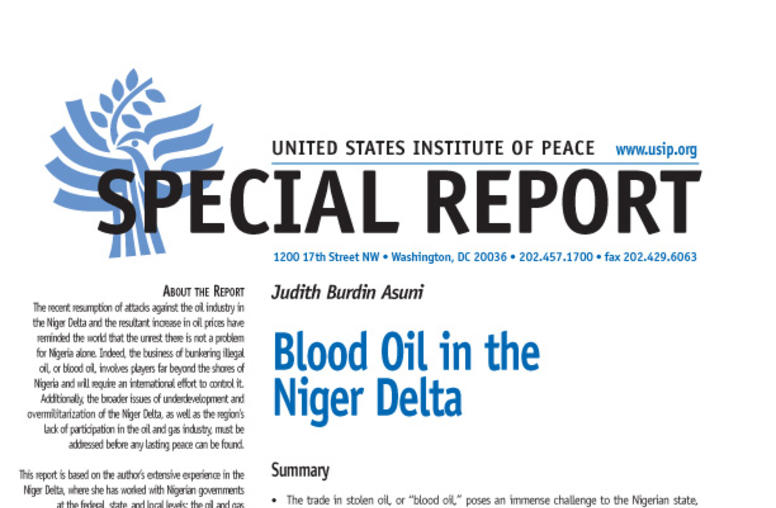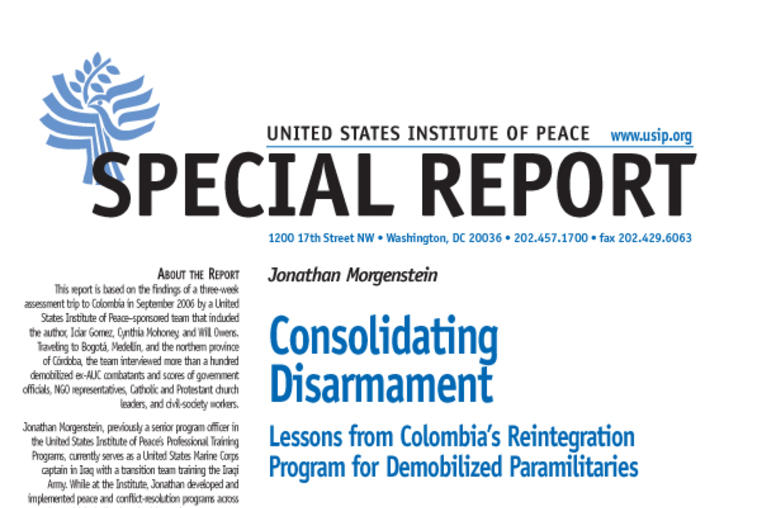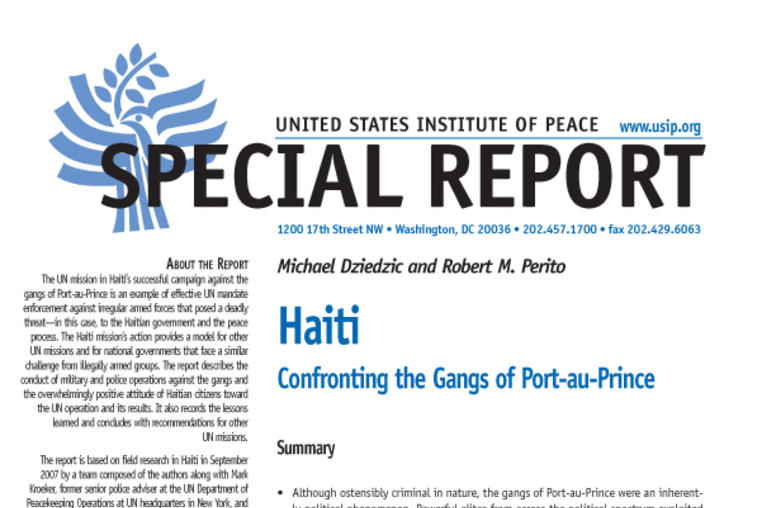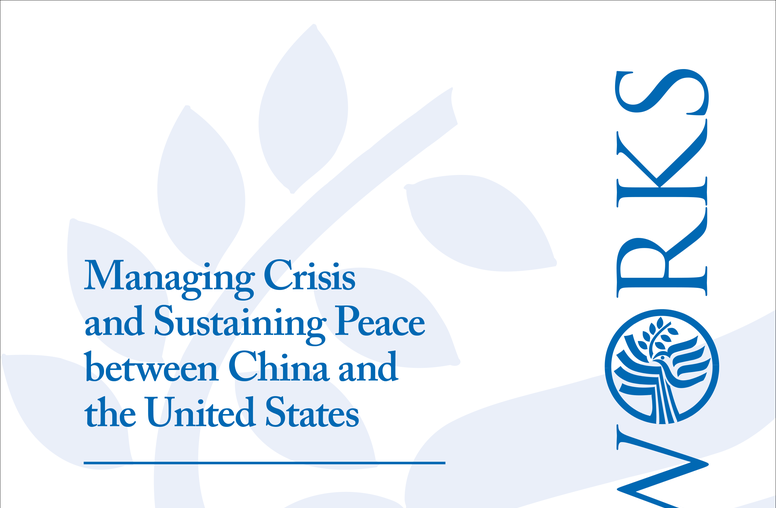Publications
Articles, publications, books, tools and multimedia features from the U.S. Institute of Peace provide the latest news, analysis, research findings, practitioner guides and reports, all related to the conflict zones and issues that are at the center of the Institute’s work to prevent and reduce violent conflict.
Nuclear Summit Wraps, Creating Momentum to Bolster Security
At the Nuclear Security Summit on April 12 and 13, leaders from around the world pledged to take their own steps to secure nuclear material used in bombs, civilian nuclear reactors and power plants, and to work together to enhance overall security.
On the Issues: the New START
Ambassador Jayantha Dhanapala explains the significance of the new Strategic Arms Reduction Treaty (START), as signed by U.S. President Barack Obama and Russian President Dmitry Medvedev on April 8, 2010.

Blood Oil in the Niger Delta
The trade of stolen oil, or “blood oil,” in Nigeria is fueling a long-running insurgency in the resource-rich Niger Delta region that has claimed many lives. Oil “bunkering” – or theft – has fomented the armed conflict in the region, providing militant groups with funds to purchase weapons, and has increased instability in oil prices on world energy markets. Nigerian President Umaru Yar’Adua in July 2008 asked the Group of Eight nations for help in dealing with the problem, but no concrete ac...
On the Issues: North Korea
One day after North Korea’s nuclear test drew widespread condemnation, the country on May 26th test-launched two more short-range missiles. This marks Pyongyang's second nuclear test, after its first in October 2006. Amid rising tensions on the Korean peninsula, South Korea joined the Proliferation Security Initiative, a U.S. initiative to curb the trade of weapons of mass destruction, an action North has called a declaration of war.
On the Issues: North Korea
The White House said North Korea had taken "a serious step in the wrong direction" when the regime expelled international inspectors from the country and announced it would restart its nuclear program. USIP’s John S. Park provides regional context to the latest developments.

Consolidating Disarmament: Lessons from Colombia’s Reintegration Program for Demobilized Paramilitaries
An essential component of any post-conflict stabilization program is the permanent dismantlement of armed groups and their fruitful absorption into civilian society—this process is known as disarmament, demobilization, and reintegration. Although Colombia continues to wrestle with violent conflict at the hands of multiple armed factions, the country embarked on a major DDR program in 2003 with the goal of permanently ending the threat of violence from one of those armed factions—the United Se...

Haiti: Confronting the Gangs of Port-au-Prince
The UN mission in Haiti's successful campaign against the country's gangs set a precedent for future missions. Based on field research, authors Michael Dziedzic and Robert Perito explore the conduct of military and police operations, Haitians' overwhelmingly positive views of the UN intervention and lessons learned.
On the Issues: North Korea
What are the repercussions of Pyongyang's and Washington's recent steps on the nuclear issue? Is this a major shift or a calculated short-term move? Read analysis from Senior Fellow John S. Park.

Managing Crisis and Sustaining Peace between China and the United States
A series of crises have strained relations between the People’s Republic of China and the United States since the end of the Cold War. Although none of these crises led to direct military hostilities, they have had an adverse impact on bilateral relations and portend future such crises between the two countries. To determine how best to mitigate such crises in the future, it is important to study these recent crises and identify the positive and negative responses and actions of both governm...
A World Without Nuclear Weapons: The International Dimension
On Tuesday, March 6, 2008, USIP hosted a wide-ranging discussion entitled "A World Without Nuclear Weapons: The International Dimension." The panelists included Ambassador Max Kampelman, distinguished lawyer, diplomat, and educator, as well as former vice chairman of the Institute’s board of directors; George Perkovich, vice president for studies – global security and economic development, at the Carnegie Endowment for International Peace; and Ambassador James Goodby, research fellow at the H...